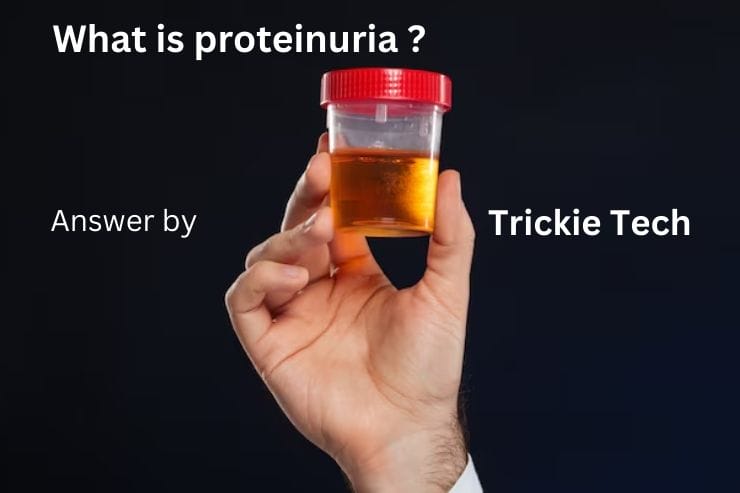Introduction:
Protein in urine, also known as proteinuria, is a condition where there is an unusually high amount of protein in urine. Normally, urine contains less than 150 milligrams of protein per day. Proteinuria can be a sign of kidney damage, as healthy kidneys don’t usually allow much protein to pass through. When the kidneys are damaged, proteins like albumin can leak from the blood into the urine. Or It is a common symptom of kidney disease, including chronic kidney disease (CKD). Managing this condition through diet is crucial for maintaining healthy kidneys and preventing kidney failure. In this article, we’ll explore kidney-friendly beverages that can aid in reducing proteinuria, mitigate symptoms of kidney disease, and maintain optimal kidney health.
Understanding Proteinuria: Causes, Risks, and Healing Strategies

Proteinuria, the presence of excessive protein in the urine, often acts as a red flag for potential kidney problems. Healthy kidneys function as masterful filters, meticulously separating waste products from the blood while retaining essential proteins needed by the body. In proteinuria, this filtration process malfunctions, allowing protein to leak into the urine.
The Role of Healthy Kidneys:
Imagine your kidneys as intricate filtration systems. Millions of tiny units called nephrons act as workhorses, filtering waste products like creatinine and urea from the blood. They meticulously return essential elements like water, electrolytes, and proteins back into the bloodstream, ensuring a healthy internal environment.
When Protein Leaks: Understanding Proteinuria:
Proteinuria disrupts this delicate balance. Normally, large protein molecules are too big to pass through the filtration units in the kidneys. However, in proteinuria, damage to the nephrons allows these proteins to slip through, appearing in the urine.
Causes of Proteinuria;
Proteinuria can arise from various underlying conditions, categorized as primary (originating within the kidneys) or secondary (caused by other health problems).
Primary Kidney Diseases;
Several primary kidney diseases can lead to proteinuria:
- Glomerulonephritis: Inflammation of the glomeruli, the tiny filtering units within the nephrons.
- IgA Nephropathy: An autoimmune disorder affecting the glomeruli.
- Focal Segmental Glomerulosclerosis (FSGS): Scarring of the glomeruli, hindering their filtration capabilities.
Secondary Causes of Proteinuria;
Several systemic conditions can also trigger proteinuria:
- Diabetes: Uncontrolled blood sugar levels can damage the kidneys’ filtration system.
- High Blood Pressure: Chronic hypertension can strain the kidneys, leading to protein leakage.
- Autoimmune Diseases: Systemic lupus erythematosus (SLE) and other autoimmune conditions can target the kidneys, causing proteinuria.
- Infections: Kidney infections can cause temporary proteinuria, usually resolving with treatment.
- Genetic Causes: Alport syndrome and other genetic disorders can affect kidney function, resulting in proteinuria.
Risks Associated with Proteinuria;
Proteinuria itself is a symptom, not a disease. However, it signifies underlying issues that can lead to serious complications:
Increased Risk of Kidney Disease Progression;
Proteinuria can accelerate the progression of kidney disease. The ongoing loss of protein can weaken the kidneys’ ability to function effectively.
Cardiovascular Complications;
Proteinuria is often linked to high blood pressure, a significant risk factor for heart disease and stroke.
Edema (Fluid Retention);
Protein leakage disrupts the delicate balance of fluids in the body, leading to edema, or swelling, typically in the ankles and feet.
Managing Proteinuria: A Multi-Pronged Approach;
There’s no magic bullet for curing proteinuria. However, a multi-pronged approach can effectively manage protein levels and slow disease progression:
Dietary Modifications;
Dietary changes play a crucial role in managing proteinuria:
- Low-Protein Diet: A doctor may recommend a moderate reduction in protein intake to decrease the strain on the kidneys.
Reduced Sodium Intake: Excessive sodium intake can worsen proteinuria. avoid to intake of sodium
Information about Urine and Its Color:

The provided urine color chart indicates different hydration levels based on the color of the urine:Very Good: Very pale yellow. Indicates optimal hydration.
Good: Light yellow. Suggests good hydration.
Fair: Yellow. Slightly dehydrated, but generally acceptable.
Light Dehydrated: Dark yellow. Indicates mild dehydration.
Dehydrated: Amber. Moderate dehydration.
Very Dehydrated: Orange. Severe dehydration.
Severe Dehydrated: Dark orange to brown. Extreme dehydration or possible liver/bile duct issues.
for more information visit Here:
Top 10 Super Drinks to Stop Proteinuria Quickly and Heal Kidneys Faster:

1. Green Tea
Green tea is rich in antioxidants and has anti-inflammatory properties. It may help reduce proteinuria and protect kidney function. Aim for 2-3 cups daily.
2. Cranberry Juice
Cranberry juice contains compounds that prevent bacteria from adhering to the urinary tract lining. It can help prevent urinary tract infections (UTIs) and reduce proteinuria.
3. Hibiscus Tea
Hibiscus tea has been linked to improved kidney function and reduced proteinuria. It’s also refreshing and caffeine-free.
4. Lemon Water
Lemon water is hydrating and provides vitamin C. It may help prevent kidney stones and support overall kidney health.
5. Beetroot Juice
Beetroot juice contains nitrates that improve blood flow to the kidneys. It may help reduce proteinuria and support kidney function.
6. Pomegranate Juice
Pomegranate juice is rich in antioxidants and may protect against kidney damage. It’s also delicious!
7. Herbal Teas (Chamomile, Mint, and Ginger)
Herbal teas like chamomile, mint, and ginger are soothing and hydrating. They can help reduce inflammation and promote kidney health.
8. Watermelon Juice
Watermelon is hydrating and contains compounds that support kidney function. Fresh watermelon juice is a tasty choice.
9. Cucumber Water
Cucumber water is refreshing and helps flush out toxins. It’s low in calories and beneficial for kidney health.
10. Coconut Water
Coconut water is a natural electrolyte-rich drink that keeps you hydrated. It’s also gentle on the kidneys. It also act as ORS (Oral rehydration solutions (ORS) are used to treat dehydration caused by diarrhea.
Conclusion:
Remember, always consult a healthcare professional for personalized advice regarding kidney health and dietary choices. These drinks can complement a balanced diet and contribute to better kidney function. 🌿
Author:
Disclaimer: This content is for informational purposes only and is not intended as medical advice.

Trickie Tech Author is Dawood Fareed, Founder of BeDigitalwithDawood. unbeatable offer in the world. With 3+ experience in Digital Marketing & also experience in AI Tools.
